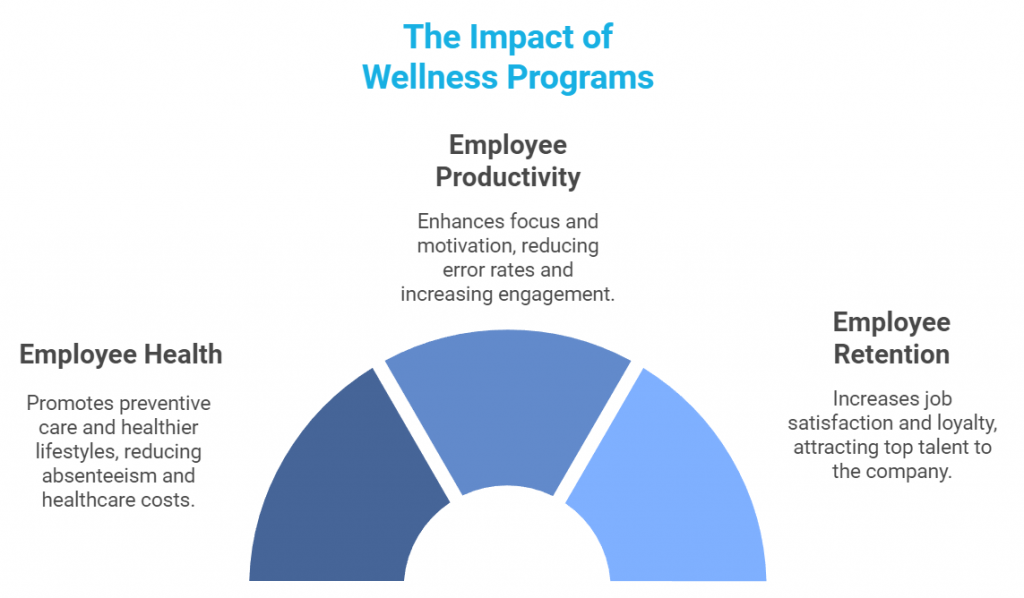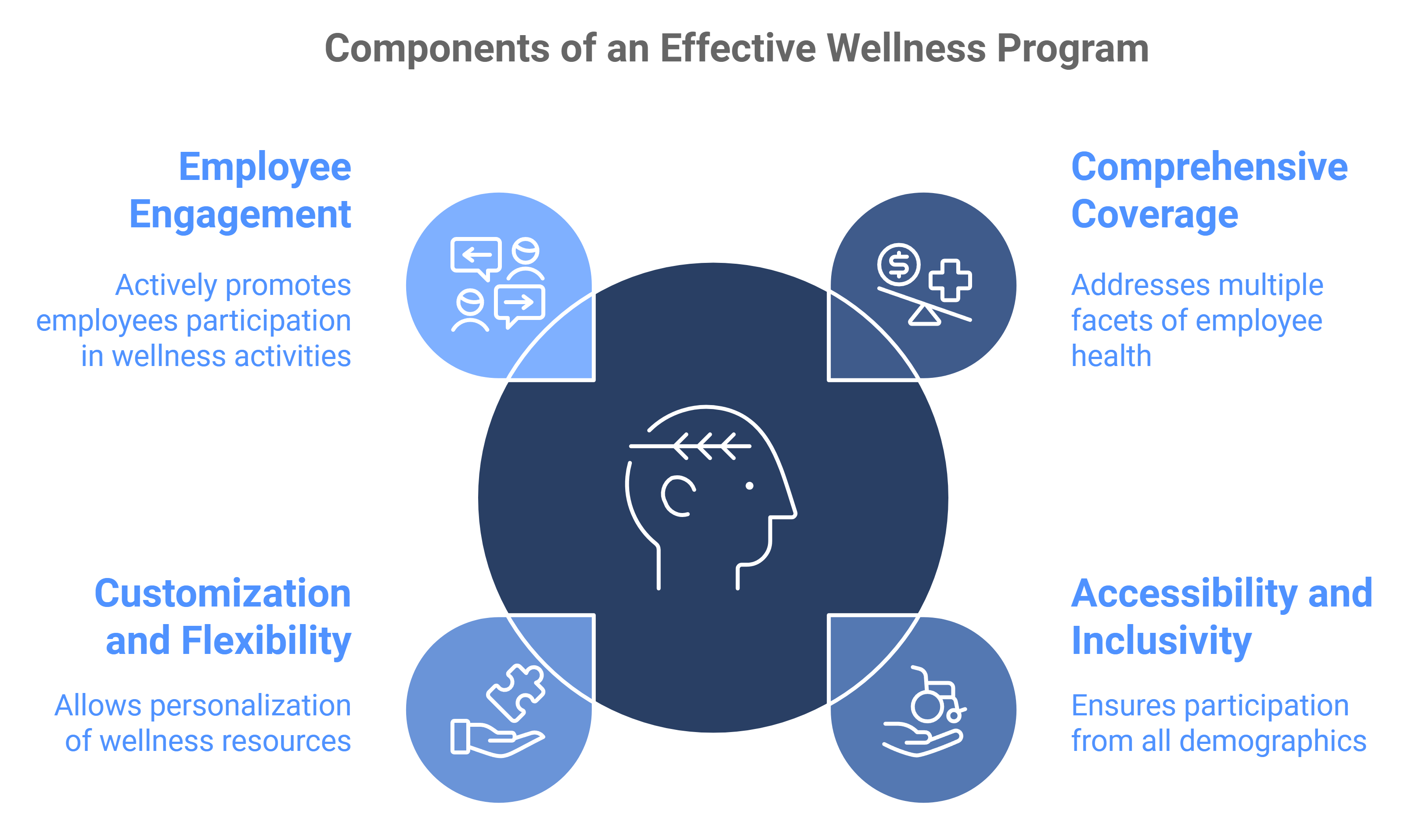Corporate Health Insurance and Wellness Benefits
Corporate health insurance has become a cornerstone of employee benefits, providing essential medical coverage that safeguards both employees and employers. However, the scope of these plans has expanded significantly to incorporate wellness programs, which prioritize preventive care and holistic well-being. The growing importance of wellness programs in corporate health insurance cannot be overstated, as companies recognize the value of investing in their employees’ health. In this article, we delve into the advantages of wellness programs and evaluate some of the best corporate health insurance plans that include these comprehensive wellness offerings.
What Are Wellness Programs in Corporate Health Insurance?
Wellness programs are initiatives designed to enhance employee health, prevent chronic diseases, and promote overall well-being. These programs are increasingly included within corporate health insurance plans, allowing employees to access services and resources aimed at physical and mental health improvement. Wellness programs vary widely in scope and scale, depending on the health insurance provider and the specific needs of the company. Typical wellness program components could include:
- Mental Health Support: Services such as counseling, stress management, and mindfulness training help employees manage their mental well-being. With rising awareness of mental health issues in the workplace, many companies are ensuring that their wellness programs offer robust mental health services.
- Fitness Programs: Access to gym memberships, yoga classes, and exercise routines encourages employees to stay physically active. Companies recognize that encouraging physical activity not only improves health but also enhances mental clarity and reduces stress.
- Preventive Health Services: Regular health screenings, vaccinations, and wellness check-ups aim to catch potential health issues early. Wellness programs often offer these services to catch health issues early before they become serious, which can save both the employee and employer money in the long run.
By including wellness programs, companies provide resources that not only benefit employees but also lead to organizational advantages, such as reduced absenteeism and lower healthcare costs. A comprehensive wellness program can improve employee morale, reduce absenteeism, and foster a healthier and more engaged workforce. Furthermore, companies that prioritize employee wellness often see a boost in retention rates, as employees are more likely to stay with an employer who values their health and well-being.
Benefits of Wellness Programs for Businesses
Improved Employee Health: One of the primary benefits of implementing wellness programs in the workplace is the improvement in overall employee health. Wellness programs lead to healthier employees by promoting preventive care and healthier lifestyles. When employees have access to regular health screenings, fitness programs, and mental health support, they are better equipped to avoid illness and manage stress. This contributes to a reduction in absenteeism and long-term healthcare costs, as employees maintain better health overall.
Increased Employee Productivity: There is a clear connection between wellness programs and productivity. Healthier employees are more energetic, focused, and motivated, which directly impacts their performance at work. By prioritizing employee wellness, companies can enhance productivity, reduce error rates, and create a more engaged workforce. Mental health support, which is often included in wellness programs, plays a crucial role in maintaining productivity. Stress, burnout, and mental health challenges are among the leading causes of reduced work efficiency and increased absenteeism. Offering resources such as counseling or stress management workshops helps employees cope with these challenges, allowing them to remain focused and productive. Moreover, fitness programs can enhance physical energy levels and cognitive function, further boosting workplace productivity. Employees who participate in regular physical activity tend to report higher levels of energy and concentration, enabling them to complete tasks more efficiently.
Employee Retention and Attraction: Wellness programs can significantly improve employee satisfaction, making them more likely to stay with the company. Employees are more likely to stay with a company that invests in their well-being. A comprehensive wellness program demonstrates that the employer cares about the long-term health and happiness of its workforce, which in turn fosters loyalty and job satisfaction. Additionally, offering comprehensive wellness programs can also help attract top talent. In a competitive job market, this may become a differentiator that strengthens the employer brand. By promoting a healthy work culture, businesses can not only retain valuable employees but also attract high-caliber professionals who seek employers with a commitment to their well-being.

Key Elements of an effective Corporate Wellness Plan
An effective wellness program goes beyond basic health coverage, incorporating comprehensive services like physical, mental, and financial health resources. Programs should also prioritize accessibility and inclusivity, ensuring all employees, regardless of their work environment or physical ability, can participate. Flexibility and customization are also essential, allowing employees to personalize their wellness journey. Programs that actively engage employees through incentives, challenges, and ongoing communication foster a culture of wellness and encourage higher participation rates.
Comprehensive Coverage: A well-rounded wellness program should address multiple facets of employee health, including physical fitness, mental well-being, and preventive services. Comprehensive coverage ensures that employees have access to a variety of resources tailored to their individual needs, promoting holistic well-being.
Accessibility and Inclusivity: To be effective, wellness programs must be accessible and inclusive. This means accommodating employees from all demographics, roles, and locations within the company. Programs should be designed to be accessible regardless of employees’ schedules or physical abilities, ensuring everyone can participate.
Customization and Flexibility: Customizable wellness programs allow employees to select resources that align with their personal health goals and preferences. Flexibility in wellness offerings encourages higher participation rates and better engagement, as employees feel empowered to tailor the program to their unique needs.
Employee Engagement: An effective wellness program goes beyond providing resources; it actively engages employees through incentives, interactive activities, and ongoing communication. Programs that promote participation, such as health challenges, reward systems, and team events, help foster a culture of wellness and drive employee involvement.

Top Corporate Health Insurance Plans with Wellness Programs
Corporate health insurance plans with wellness programs are designed to not only cover medical expenses but also promote overall employee wellness and well-being. Here are some of the top Insurers with corporate health plans that have the best wellness benefits.

